Recent political events have brought the entrenched culture of 'Us vs Them' and Western apathy to the fore
Nothing is more telling of the Western world’s attitude towards developing nations than the ongoing humanitarian crisis in the Middle East.
We in the Global South aren’t the only ones aghast at non-precision attacks by the Israel Defense Forces (IDF) on the Gazans. American academic John Mearsheimer, one of the world’s foremost international relations experts, is of the view that Tel Aviv is committing war crimes and “tearing the place” apart. He said in a recent interview that Israel is “waging a punishment campaign in Gaza [where] they are punishing the civilian population. If the Israelis were going to great lengths to target just Hamas and avoid civilian casualties then you could make a coherent argument that this is not a case of them committing war crimes. But they are not doing that.”
This is not the first instance of the South feeling betrayed by the West, which has come under sharp attack for treating the people of the rest of the world as subhuman, mere expendables. One key takeaway from Israel is the statement by its defense minister that the IDF is up against “human animals” in Gaza. This is the language of the colonizer since the dawn of empires: Sir Winston Churchill thought of Indians as an inferior race. When he was told that millions were dying in India because of the British diverting food supplies to the frontlines during World War II, he reportedly asked, “Why hasn’t Gandhi died yet?” There may exist no proof that he uttered those exact words, but his attitude was clear.
From dehumanizing the Gazans who died in IDF strikes by terming them “Hamas’ human shields” – an accusation made sweepingly without evidence, as is the habit of the powerful over the ages – an Israeli representative has now called the UN relief workers in Gaza “Hamas members.”
Read more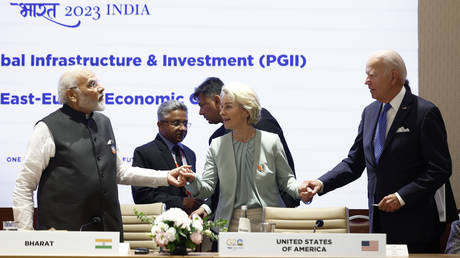 A Bridge Too Far? Why Israel-Palestine war is a setback for economic corridor connecting India to Europe
A Bridge Too Far? Why Israel-Palestine war is a setback for economic corridor connecting India to Europe
Among the Western leaders, only Emmanuel Macron of France has so far spoken out against the killings of civilians in Gaza. The less said, the better about US officials such as former secretary of state Hillary Clinton, whose claims about Hamas’ “terror infrastructure” have not been backed up by proof of any kind – a privilege that would not have been so easily granted to a country from the Global South.
I recently interviewed Dr. Mads Gilbert, a veteran Norwegian physician in the NORWAC (Norwegian Aid Committee) emergency team for Gaza, who has worked with the Palestinians for nearly 45 years as a specialist in emergency medicine and anaesthesiology. He was in Lebanon in 1982 when the IDF invaded the south of the country. He was in Gaza, too, offering emergency medical services during the Israeli bombardments of 2006, 2009, 2012, and 2014. He had worked in hospitals that the IDF had bombed, including Al-Shifa Hospital. "I challenge [Benjamin] Netanyahu to show proof that Al Shifa Hospital is a Hamas hideout," he told me just before crossing the Rafah border into Gaza during the current bombardment to assist Palestinian doctors working under the direst conditions.
The West seems driven by a divine right to whimsically trample upon the human rights of those it deems unimportant and beneath it, doling out death sentences to more than 11,000 people, including over 4,000 children, infants and newborn babies, under the guise of “self-defense.”
Over the past two decades, the wars in Iraq and Afghanistan have proven this typical Western mentality beyond doubt, and these countries need to be called out for their collective hypocrisy. Now in Gaza, the women and children who die of starvation, bomb explosions, and lack of medicine perish because of American complicity – it is American weapons, funded by American taxpayers, that the Israelis use with complete impunity and utter lack of respect for international laws.
According to the Western idea of justice, even occupiers have the right to “defend” themselves militarily against the occupied. Presidents who order invasions under unethical pretexts never make it to the list of global terrorists, nor are they tried at The Hague. Leaders who criminalize whistle-blowing are forgiven because they belong to the league of untouchables. Such tyranny is condoned as business as usual in the West.
The long list of grievances that the South has against its former colonial masters predates 1969, when American academic Carl Oglesby first described the ages-old “intolerable social order” of northern “dominance over the Global South.” Cuba, a tiny island nation in the Caribbean, has been under US embargo for fictitious reasons for an unimaginable 62 years. Ironically, the sanctions have failed to meet their primary goal: ending communism in Cuba. Such sanctions are coercive actions with a political motive. Whenever the victim is a country in the Global South, the collective West stands together or is silent.
Read more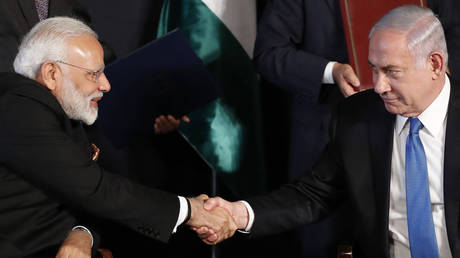 Why India is walking a tightrope on the Israel-Palestine conflict
Why India is walking a tightrope on the Israel-Palestine conflict
Since the fall of the Soviet Union, which was a bulwark against Western excesses, the wealthy nations have found a new way of controlling the world: through markets and trade. The era of direct colonization was almost over, and therefore it was important for them to drum up a mania called globalization to get regional markets to open up and allow the West to control them through other means.
The aim was not only to create a reckless consumerist culture in these countries but also to set up sweatshops and manufacturing centers for the high and mighty to hit paydirt thanks to low wages on those distant shores. In some cases, like in the case of Eastern Europe, the West successfully advocated shock therapy, or rapid globalization, but the countries didn’t stand to gain much.
What were the pros and cons of globalization? It is no secret that in a country like India, which embraced globalization in the 1990s in the face of a balance-of-payments crisis, there have been tangible gains for a class or people. We saw increased trade and growth. Alongside this, however, we saw a marked rise in inequality and marginalization of vulnerable groups. The environment became a casualty, leading to a manifold increase in natural disasters, besides displacing and trampling upon the rights of the tribal communities who depend on forests for survival. Most dangerously, there was also a rise in cultural homogeneity in a country as diverse as India. It is a subject that has been explored by the likes of scholars such as Meera Nanda and Mario Gomez-Zimmerman.
The point to note here is that, when countries like China and India are able to export products that can compete with the US, the West decides that we have had too much globalization and that it is now time to stop. The restrictions on Chinese companies are particularly discriminatory and are out of fear that they will compete with American counterparts sooner or later in high technology. Protectionism is back in the US for other reasons as well: loss of jobs in their country and discontent among the labor force, as well as the general population, which is further fueled by certain politicians.
It also puts the spotlight on the failures of neocolonial policies and capitalism itself: at a time of unprecedented economic crises, it is the government that is forced to come to the rescue of big corporations. Competition is lauded only as long as American companies can maintain the upper hand. As we have seen, a presidential order was passed to restrict US investments in Chinese entities in three sectors: semiconductors and microelectronics, quantum information technologies, and certain artificial intelligence systems.
The overall reversal of multilateralism has been criticized by none other than Pope Francis himself, noting that such moves exclude the poor, the vulnerable, and those dwelling on the peripheries of life. He warned that such a path would be "detrimental to the whole community." The breakdown of multilateralism, he said in a speech to the United Nations, has resulted in a global "climate of distrust." He also called for a relaxation of global sanctions without naming any particular country. But his message was coherent.
His statement was widely seen as an expression of disapproval at the way the West handles human rights, refugees and humanitarian crises, destruction of the environment, economic inequality and nuclear proliferation. The Pope brought up themes related to lack of global co-responsibility, aggressive nationalism, protectionism and isolation. These are the very issues that affect the Global South, too, and are at the core of the South’s frustration with the West, not to mention the latter’s shaky position on climate-change pacts.
Just as the West pandered to the ulterior motives of Israel to look the other way while Palestinians suffered for the past half century, it went back on its word and expanded its military prowess by moving towards the East and co-opting new countries into its NATO fold, seeking to besiege those it sees as adversaries. The world is watching how the West has been using Ukraine to further its military interests. The whole idea is seen as a humiliation by the Global South, especially after the futile wars in the Middle East and Afghanistan where Western intervention has also been counter-productive, to say the least. The rampant flouting of international laws and the apathy of the West towards the rest of the world has never been as stark in the post-Cold War period as it is lately.
In fact, the Covid-19 pandemic and the vaccine wars that followed were a rude awakening to how greedy advanced countries get when it comes to solely serving their interests. Rich countries made sure that their citizens were attended to first before vaccines reached the needy. Even when the per capita administration of Covid-19 vaccines in the West touched high levels, they refused to distribute them among the poorer ones. In contrast, even India, a country that struggled with its own staggering human and economic losses during the pandemic, did its bit by donating vaccines to others in need.
Read more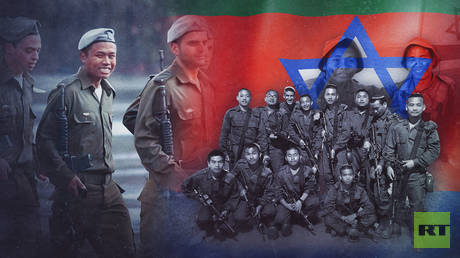 Lost tribe of Israel: How fighters from India ended up at the front lines in the war against Hamas
Lost tribe of Israel: How fighters from India ended up at the front lines in the war against Hamas
The same injustice was enacted decades ago when the West did not deliver HIV drugs to Africa, the continent that bore the brunt of the disease. This surprises none, but we thought the world had changed from 2009 when H1N1 began to spread, and it took more than seven months for the vaccines to be available. By the time they reached the poor countries, they were no longer needed. It was the Churchillian mindset that dominated the West’s priorities much more than multilateralism or global cooperation.
Meanwhile, the Bretton Woods institutions – International Monetary Fund (IMF) and World Bank, set up in 1944 to foster global integration and international economic cooperation – are now under sharp attack for being tools to advance American hegemony. They are also accused of promoting a ‘global apartheid’ of sorts that favor the advanced economies, and use political reasons as the key criteria for disbursing loans rather than economic considerations.
The current Palestine crisis has manifested the avarice of the neocolonial West much more than any other single incident, in that women and children of the South are seen as fair game. The sense of distrust is high and is already being felt on the ground in the rest of the world. As history tells us, no empire lasts forever. Those currently in power would do well to remember their Achilles’ heel: the winds of change.

 5 months ago
70
5 months ago
70
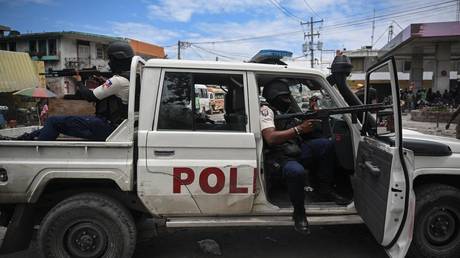
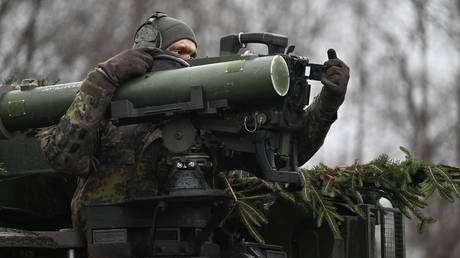
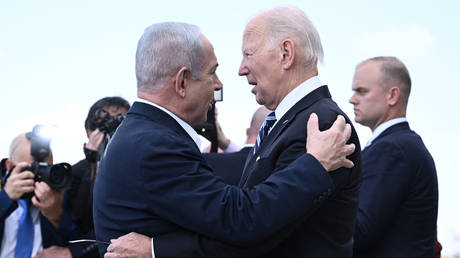
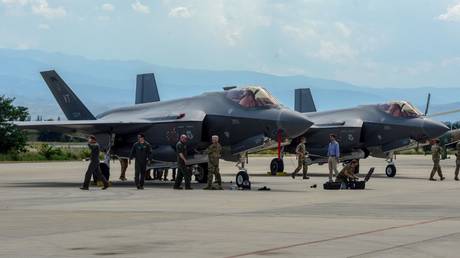
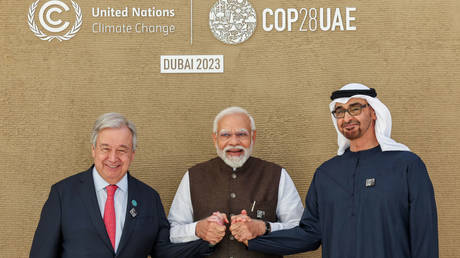
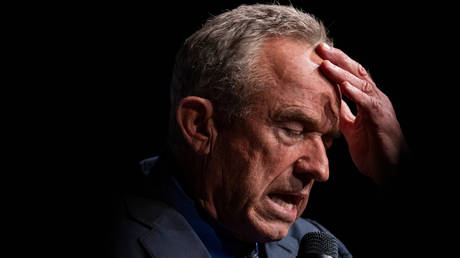
 English (US) ·
English (US) ·